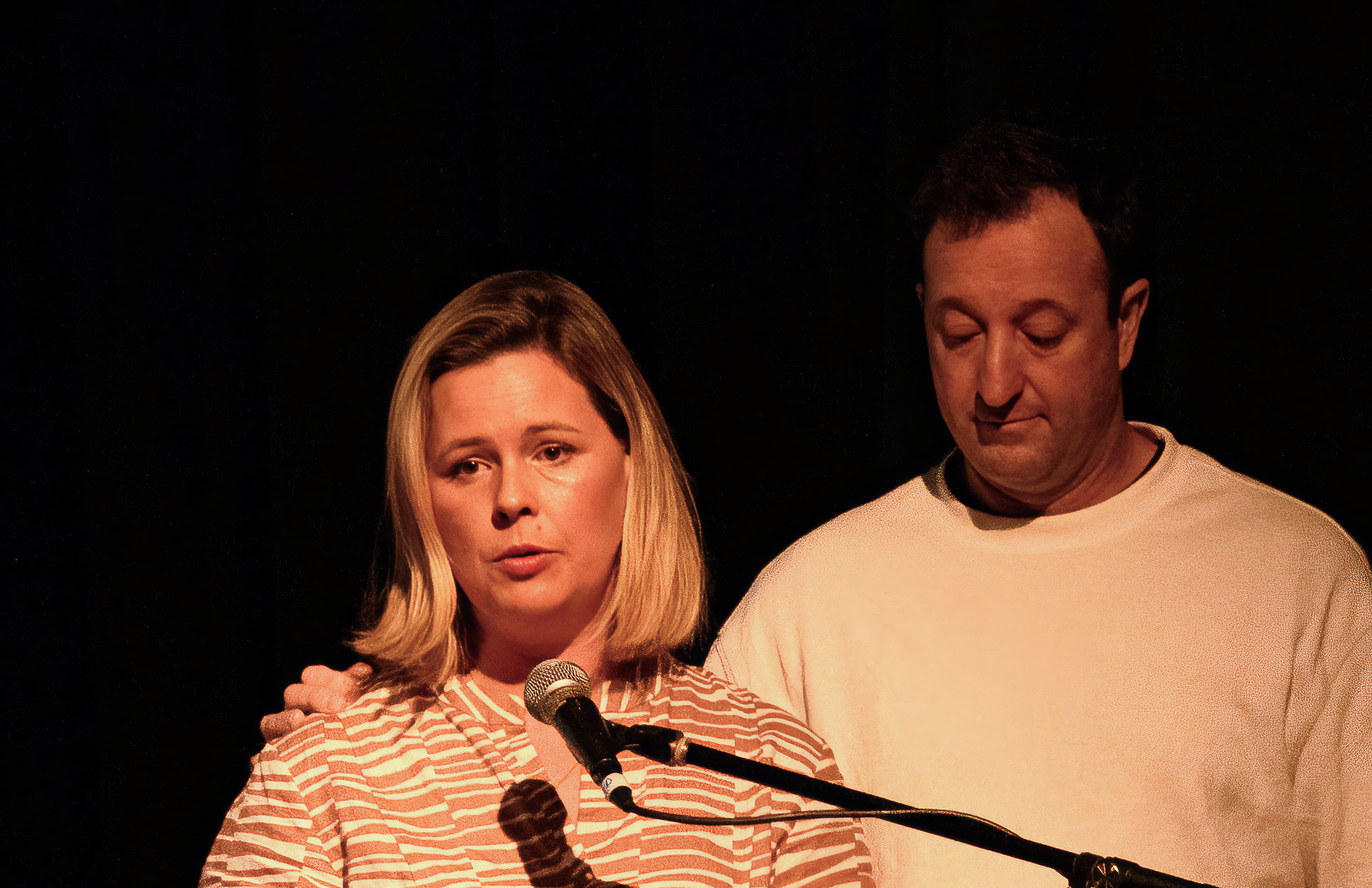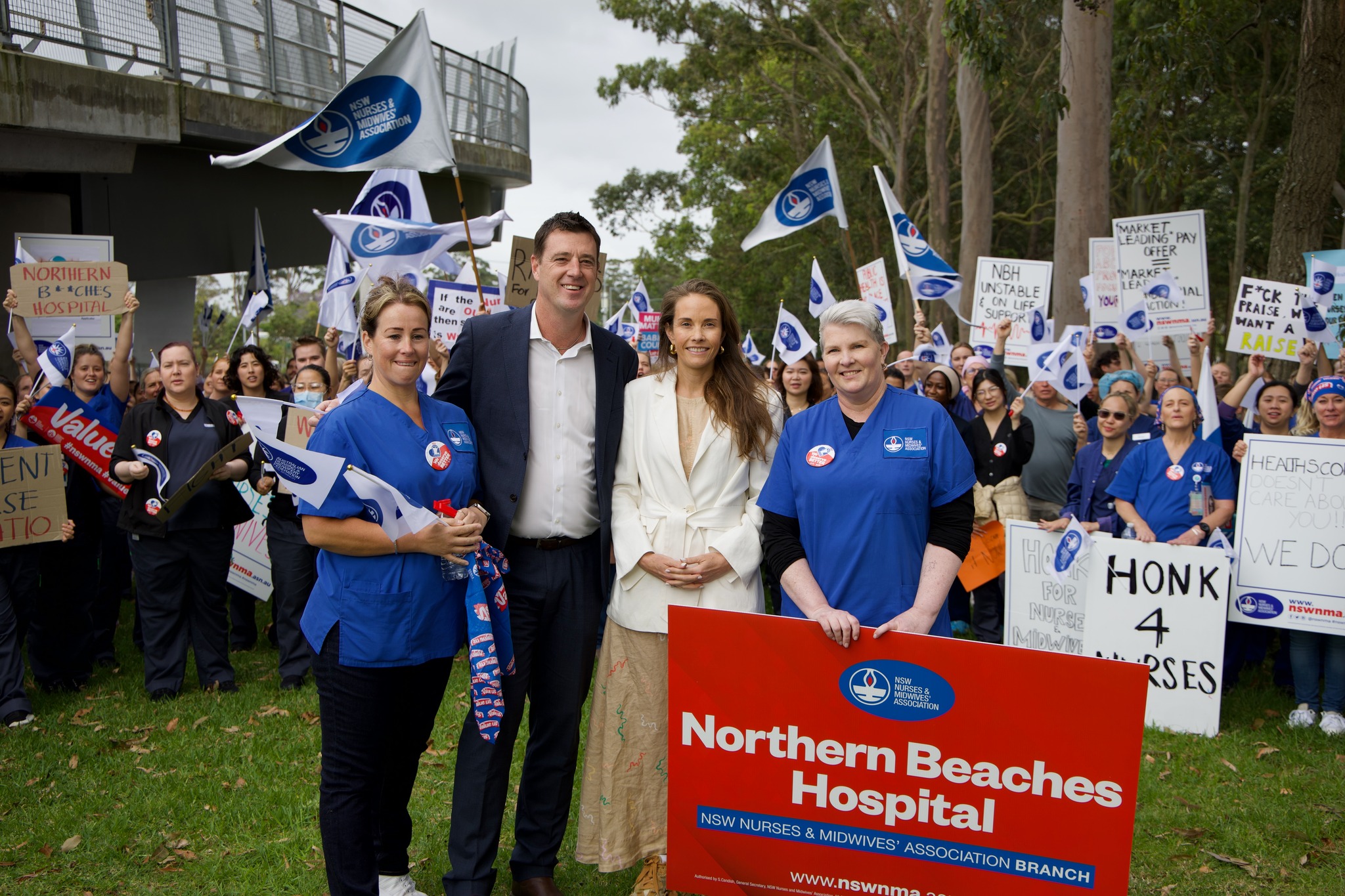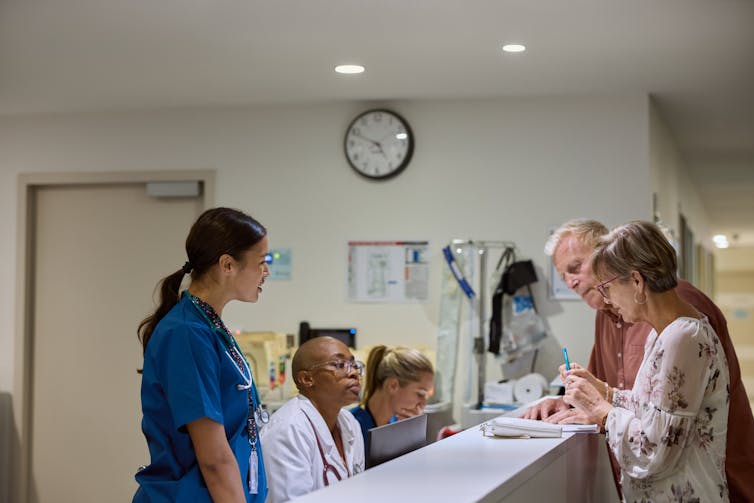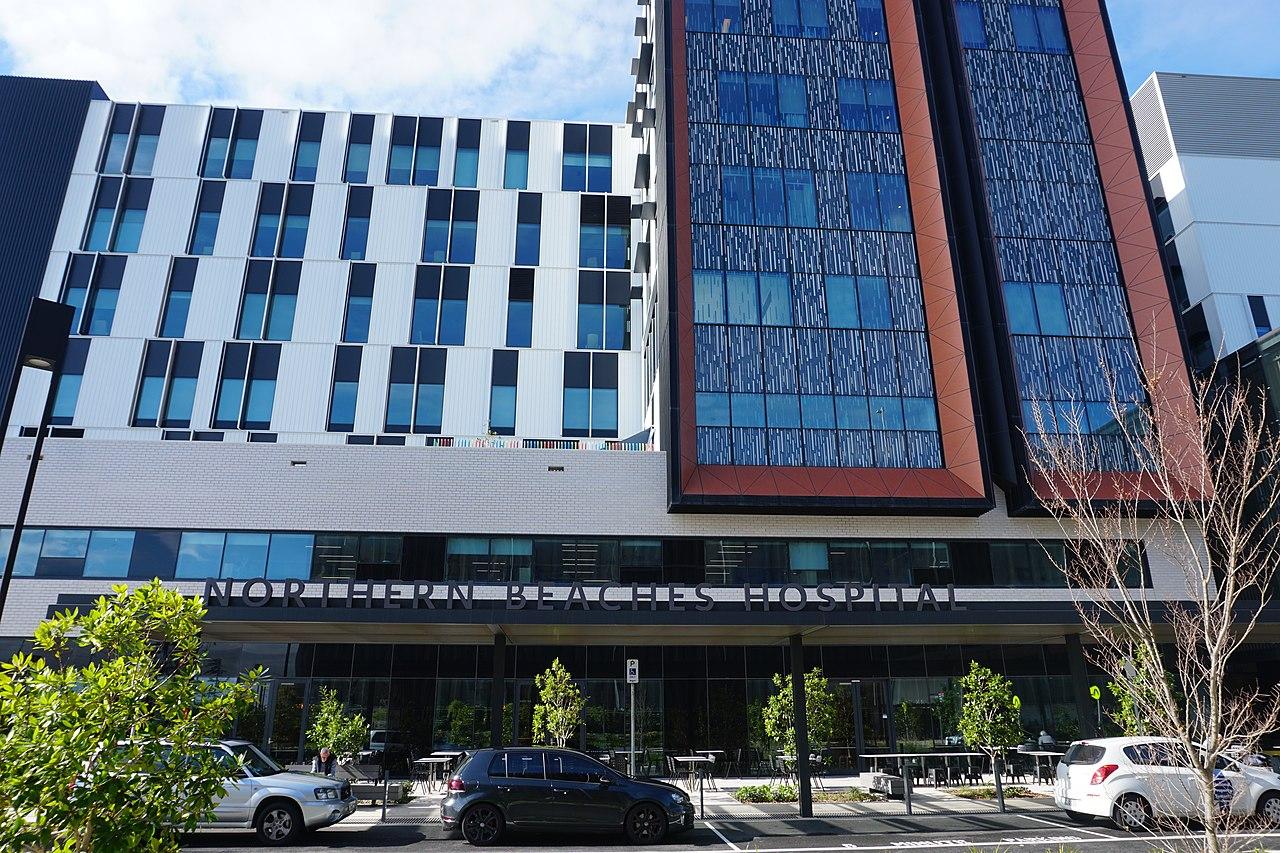On Tuesday October 21 the NSW Government announced the Northern Beaches Hospital’s shift to public ownership is nearing its conclusion, with in-principle agreement reached with Healthscope’s receivers on a $190 million payment for the transition.
The milestone marks the final phase in the Minns Labor Government’s promise to rectify one of NSW’s worst privatisation experiments, while minimising the impact on taxpayers.
This follows months of negotiations between the NSW Government, Healthscope and its receivers, and will see the hospital move to the direct control of the Northern Sydney Local Health District by mid-2026.
Under the agreement:
- The entire 494-bed hospital will return to public ownership
- All clinical and support staff currently working at Northern Beaches Hospital will be offered jobs by NSW Health at the facility, and
- Staff entitlements will transfer across from Healthscope to NSW Health.
The Minns Government stated it will now finalise the legal and commercial arrangements required for transfer, including workforce transition.
It will also consult closely with clinicians to determine future clinical services and an operating model, including the role of private services in the hospital footprint.
''Elouise and Danny Massa, the parents of two-year-old Joe Massa who died at the hospital late last year, have been tireless advocates for the facility being brought into public hands.'' the government stated in a release
''Their efforts led to the passing this year of Joe’s Law, a legal commitment by the NSW Government to prevent any future attempts to create public-private partnerships at acute care hospitals.''
Independent MPs Jacqui Scruby, the member for Pittwater and Michael Regan, the Member for Wakehurst, have also been strong campaigners in their local community for reversing one of NSW’s worst examples of privatisation.''

Elouise and Danny Massa speaking at the community forum organised earlier this year by Pittwater MP Jacqui Scruby and Wakehurst MP Michael Regan. Photo: Michael Mannington OAM of Community Photography/PON
A report by the Auditor-General this year found that the former government’s privatisation model did not allow Northern Beaches Hospital to deliver adequate health services. It found it:
- Prevented Northern Beaches Hospital from being properly integrated into the public health system, impacting access to services for patients in the area, and
- Created tension between profit motives and health outcomes.
Northern Beaches Hospital was one of six hospital privatisations attempted by the former Coalition. The five others – Maitland, Wyong, Goulburn, Shellharbour and Bowral – did not go ahead.
The Minns Government still retains the option to use its statutory powers to terminate the Public Private Partnership unilaterally if Healthscope fails to conclude the deal on fair and reasonable terms.
Premier Chris Minns said on Tuesday:
“We’ve reversed one of the worst decisions of any NSW Government, where a private hospital model was foisted on the people of the Northern Beaches.
“Our state’s acute hospital services that provide lifesaving care to the people of New South Wales should not be privatised and thanks to this decision, no hospital in NSW will be.”
“Because of Elouise and Danny’s courage and persistence, Joe’s Law now ensures that no future government can repeat the mistakes that led to the Northern Beaches Hospital privatisation. Their advocacy will leave a lasting legacy for every patient and every family who relies on our public health system.”
Treasurer Daniel Mookhey stated:
“This agreement delivers what the Northern Beaches community has been calling for – a publicly run hospital that puts patients before profit.
“At $190 million, this agreement represents strong value for money and is an excellent result for the community.
“The Government has been clear all along that there will be no windfall gains for Healthscope or its investors at the expense of NSW taxpayers. This deal makes good on that commitment.”
Pittwater residents recall a $500+ million spend on the hospital's construction and a further $500 million on upgrading the roads around the building, but still very little to prevent flooding and access on the Wakehurst Parkway, the most direct route for all those at Narrabeen and north to Barrenjoey. The $190 million would indicate the incumbent government has honoured its commitment regarding its oft repeated 'no windfall gain' requirement this year.
NSW Minister for Health Ryan Park said:
“We have done in a matter of months what would have otherwise taken years – undoing one of the most complex privatisation arrangements in the state’s history.
“We have worked with an urgency and speed to provide certainty for the community, patients and staff. We thank the staff for their hard work and cooperation as we continue to work through the transition.
“This agreement does not mark the end – but the beginning – of the transition of a major hospital into the public health system.
“I want to be upfront that this will not be without its challenges, but patient safety sits at the very heart of this handback to public ownership.
“Let me be clear, clinical and support staff will have the opportunity to continue to work at Northern Beaches Hospital and will be offered employment with NSW Health.”
Independent Member for Pittwater, Jacqui Scruby MP, expressed her support for the NSW Government’s decision to bring the Northern Beaches Hospital (NBH) into public ownership, urging a careful transition that allows valued private services to continue and avoid increased strain on the public system.
Ms Scruby said: “The failings of the public-private partnership model adopted at Northern Beaches Hospital and need for change have widespread support from the Northern Beaches community and all sides of government.”
This announcement marks an important turning point for our community. For too long the public-private model at NBH has failed the northern beaches community. We now have the opportunity to deliver a public hospital that is publicly run, with proper nurse-to-patient ratios and systems that place patients ahead of profit.”
This move follows the collapse into receivership of Healthscope, not just with respect to NBH but across the entire group of 38 hospitals it operated, with media reports of limited interest from the market.
Audit reports, inquiries and recent tragic events have exposed systemic failures, including unsafe conditions, repeated warnings about dangerously low staffing levels and cost-cutting measures that placed pressure on standards of patient care.
The community has been calling for these failings to be addressed, and there is now multi-partisan recognition that acute public hospital services should not be run by a private company.
“The transition to public operation offers the chance to align Northern Beaches Hospital with the standards expected by our community: robust staffing, integration into the local health network and clinical leadership focused first on patients, not profit.
“While public services must be strengthened, the hospital’s private services are world leading and highly valued by the community with approximately 75% of residents having private health insurance. To ensure a smooth transition, the Government must work closely with private providers to give health professionals and patients certainty that these services will continue to provide choice and ease pressure on the public system.
“The Government must provide certainty: ensure private services remain, provide clarity on operator arrangements, protect staff and reassure the community that both public and private services will flourish. I will continue to work closely with the Minister and local clinicians to make sure that happens.”
AMA: Call to maintain private services at Northern Beaches Hospital
On October 10 the Australian Medical Association AMA (NSW) was also calling on the NSW Government to ensure Northern Beaches Hospital continues to provide private health services – as part of an original promise given to community members and doctors.
The hospital was established in 2018 with the intention that its operator would run public and private health services for 20 years. At the end of that time, public services would be handed back to the NSW Government and the operator would continue to provide private hospital services. That plan still has 13 years to run.
“The community was promised it would have access to public and private health services for two decades. Doctors were promised they would have options in the way they delivered care to the patients of the Northern Beaches,” AMA (NSW) president Dr Kathryn Austin said.
Northern Beaches Hospital head of maternity Dr David Jollow said many staff now felt adrift.
“We know there must be change, but there are real fears many staff, who have been providing excellent care to the community for the past seven years, will now leave,” he said.
“Senior medical staff agree that Northern Sydney Local Health District should run the public component of the hospital, but more than 200 senior medical staff passed a resolution recently seeking the continuation of private services for the community.”
AMA (NSW) is calling for the NSW Government to make a commitment to the people of the Northern Beaches that they will continue to have choices in how they receive their healthcare.
Mackellar MP Dr. Sophie Scamps, reiterated the AMA's statement to the news service, saying:
''With Healthscope, the private operator of the Northern Beaches Hospital, in receivership, the NSW Government’s announcement today of the public takeover of the hospital provides much-needed certainty for our community. This is an important first step in transitioning away from the public-private partnership under Healthscope, which has failed to deliver a consistent standard of acute public healthcare for our community.''
''As NSW Health works to transition the hospital to an improved model of public care that matches staff to patient ratios, junior doctor levels, IT systems and resourcing to all other public hospitals in NSW, I look forward to continue working with the Minns Government to ensure public bed numbers and vital public services, including those provided by the cardiac catheter labs, are retained.''
''The next critical step in the transition is for the Minns Government to secure the continued delivery of private services on the hospital campus. These services play a vital role in ensuring timely access to essential care and reducing wait times for our community. The Northern Beaches deserves a hospital precinct that delivers the same level of care and timely access to high-quality public and private services as any other major metropolitan area. I will work with both the Federal and NSW Governments to ensure the transitioned public hospital is equipped with the resources it needs to support staff to deliver the high-quality care our community expects and deserves.'' Dr Scamps said

Wakehurst MP Michael Regan and Pittwater MP Jacqui Scruby stood with NBH Nurses and Midwives during work stoppages. Photo: NSW Nurse and Midwives Association - Wakehurst MP Michael Regan, Federal MP for Mackellar Dr. Sophie Scamps and Pittwater MP Jacqui Scruby attended a strike by Nurses and Midwives at Northern Beaches Hospital in NSW on March 24, 2025, as part of a broader series of rolling stoppages at Healthscope hospitals. The strike, led by the NSW Nurses and Midwives' Association (NSWNMA), aimed to pressure Healthscope, the private operator of the hospital, to address issues like staffing ratios, pay, and working conditions. This was the second such action in recent months - another was held on November 5 2024

![]()


